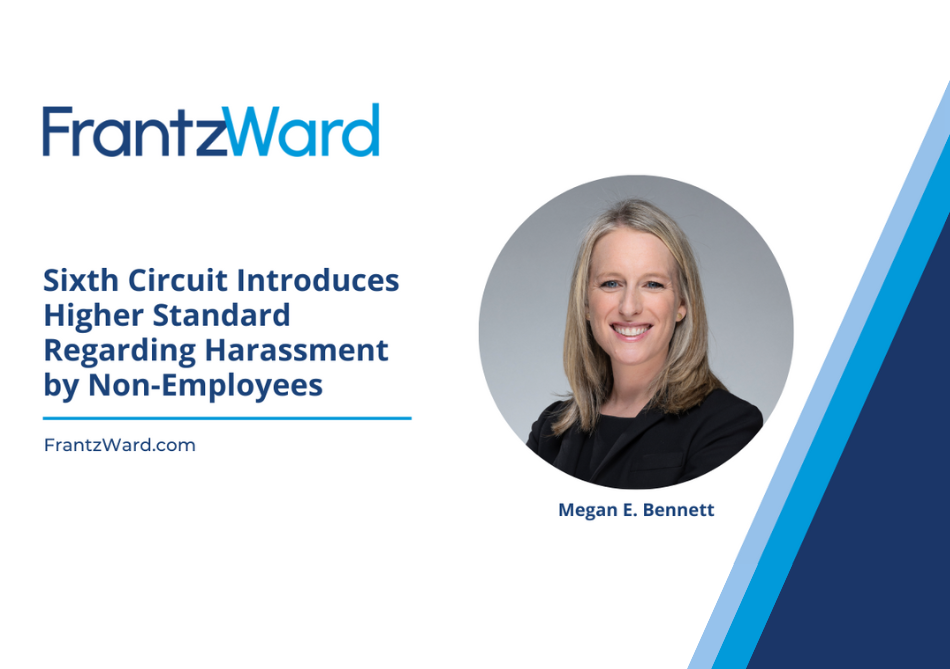Sixth Circuit Introduces Higher Standard Regarding Harassment by Non-Employees
In August, the Sixth Circuit departed from EEOC guidance and other Circuits’ case law in ruling that an employer can only be held liable under Title VII for a non-employee’s harassment if the employer intended for the harassment to occur.
In Bivens v. Zep, Inc., Bivens was a sales representative for Zep, Inc. (“Zep”). During a visit to a client’s business, the client representative invited Bivens into his office, closed and locked the door, and asked Bivens if they could date. Bivens declined and asked to leave his office. Bivens reported the incident to her supervisor, who reassigned Bivens so she would not need to interact with the client again. Neither Bivens nor her supervisor mentioned the incident to anyone else at Zep. A few months later, Bivens was terminated from Zep as part of a reduction in force. Bivens sued Zep for hostile work environment harassment based upon the interaction with the client. She also brought retaliation and race discrimination claims.
The Court conducted a deep analysis into agency law to conclude that if the non-employee is not acting to serve the employer or the employer’s business interests, there is no agency relationship. Without an agency relationship, an employee can only establish liability for hostile-work-environment harassment by a non-employee if the employee shows that the employer intended for the harassment to occur by providing evidence that the employer either:
- desired to cause the harassment
or
- was substantially certain that harassment would result from its actions.
The Sixth Circuit’s decision and standard is an outlier because the EEOC and other Circuit Courts have applied the “knew or should have known” negligence standard to hold employers liable for harassment from non-employees.
Ultimately, the Sixth Circuit held that Zep did not intend for Bivens to be harassed by the client, as it was not involved in any way in the one-off interaction. The Court also dismissed Bivens’ retaliation and race discrimination claims.
The Bivens ruling creates a more employer-friendly standard in cases involving non-employee harassment in the Sixth Circuit. Although the legal standard has changed, Human Resources’ procedures regarding harassment complaints should not. Employers should continue to treat all complaints of harassment seriously by promptly investigating the complaint and taking remedial action, if necessary, to promote a safe workplace and establish lack of intent.
If you have questions about this ruling or other labor and employment law issues, contact Megan Bennett or another member of the Frantz Ward Labor and Employment Group.


